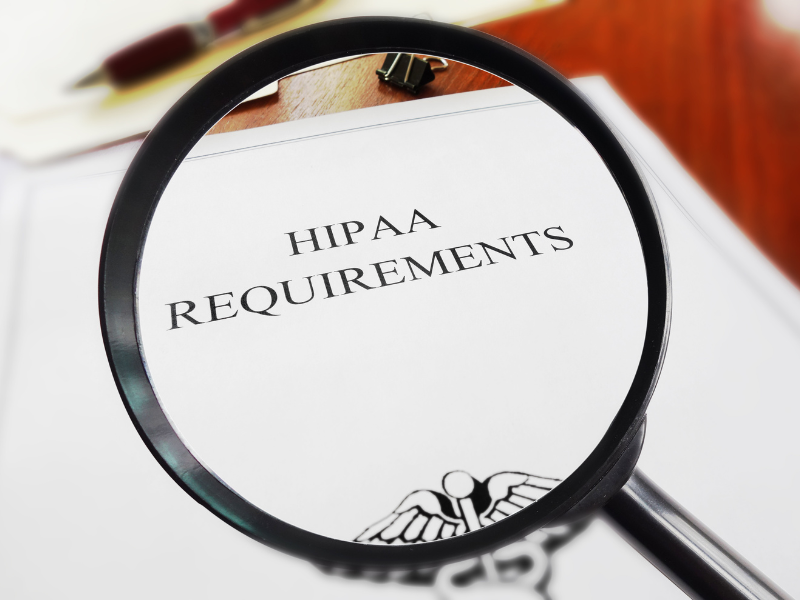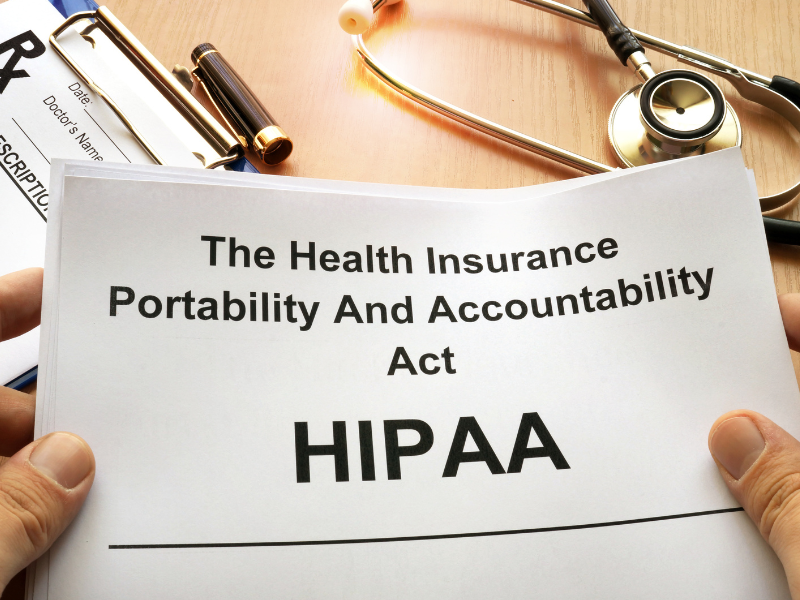The Minimum Necessary Standard is essential to the Health Insurance Portability and Accountability Act (HIPAA). This rule requires covered entities to limit the use, disclosure, and requests for protected health information (PHI) to only the most necessary disclosures for a specific purpose.
Here’s an overview of the HIPAA Minimum Necessary Standard and the best practices for compliance.
Table of Contents

HIPAA Minimum Necessary Requirements
According to the Department of Health and Human Services (HHS), the Minimum Necessary Standard in HIPAA’s Privacy Rule stems from common confidentiality practices.
The principle is based on the understanding that PHI should only be accessed, disclosed, or used when necessary to achieve a particular purpose or perform a specific function. As part of the HIPAA Privacy Rule, the minimum necessary standard requires covered entities like hospitals to evaluate their practices continually and enhance safeguards to prevent unnecessary or inappropriate access to patient health information.
HIPAA compliance with the minimum necessary standard is designed to be flexible enough to accommodate any covered entity’s circumstances and to cater to diverse scenarios.
How the HIPAA Minimum Necessary Standard Works
The essence of the Minimum Necessary Standard lies in limiting the access, disclosure, and requests for PHI to the minimum required for the intended purpose. For routine or recurring requests and disclosures, covered entities can establish standard protocols that stipulate the minimum necessary PHI for each type of disclosure or request. This eliminates the need for individual review for each instance.
On the other hand, for non-routine requests or disclosures, covered entities must develop reasonable criteria to determine and restrict the amount of patient health information necessary to accomplish the purpose. Each non-routine disclosure or request must be individually reviewed based on these criteria and limited accordingly.
HIPAA Minimum Necessary Standard Limitations
While the Minimum Necessary Standard is a critical aspect of securing PHI, it is essential to understand when and where this rule does not apply.
More specifically, its exceptions include:
- Disclosures for treatment purposes
- Disclosures to the individual
- Authorized disclosures
- Compliance with HIPAA Administrative
- Simplification Rules
- Disclosures to HHS for enforcement purposes
- Disclosures required by other laws

Examples of minimum necessary standard violations
To better grasp the significance of the Minimum Necessary Standard and its implications, let’s examine real-world examples of violations from the HHS.
Hospital employee violation
In one case example, an investigation by the Office of the Civil Rights revealed that a hospital employee violated the Minimum Necessary Standard when she left a telephone message with the daughter of a patient, divulging a detailed medical condition and treatment plan information. Additionally, the employee disregarded the patient’s instructions to contact her through her work number and left a message at her home telephone number. The hospital then implemented several new procedures to rectify the issue, including specific directions for minimum necessary information in the telephone message content.
The employees also received training to ensure they only shared necessary information in their messages. Plus, they must review patient contact directives regarding leaving messages during registration. These new procedures were integrated into standard staff privacy training, both as a refresher series and mandatory yearly compliance training.
Dental practice violation
In another scenario, an OCR investigation substantiated claims that a dental practice placed a red sticker with the word “AIDS” on the outside cover of some medical records. Consequently, other patients and staff who didn’t need to know about the patient’s condition could read this sensitive information.
In response to the complaint, the dental practice swiftly removed the red AIDS sticker from the complainant’s file. To resolve this matter, the OCR required the clinic to modify its policies and operating procedures and relocate medical alert stickers to the inside cover of the records. The covered entity’s Privacy Officer and other representatives also met with the patient, issued a written apology, and expressed regret for the incident.

Implementing Minimum Necessary Standard in Healthcare: Best Practices
The case examples above highlight the importance of ensuring compliance with the HIPAA Minimum Necessary Standard. To protect patient privacy, healthcare organizations should follow these best practices:
- Develop comprehensive policies and procedures: Create policies and procedures reflecting the organization’s unique practices and workforce. Identify who needs access to specific PHI and craft guidelines for secure access.
- Regular training and education: Include the Minimum Necessary Standard and its applications in all HIPAA training. Employees should know why adhering to the rule is important.
- Conduct auditing and monitoring: Periodic audits and monitoring help evaluate if an organization is adhering to the minimum requirement. Once a potential vulnerability or weakness is identified, the organization should immediately make adjustments.
- Stay informed on the latest updates: Regularly review guidelines from the HHS to ensure that the workforce adheres to updated HIPAA rules.
Following the HIPAA Minimum Necessary Standard to Ensure Compliance
The HIPAA Minimum Necessary Standard ensures that sensitive health information is kept safe and accessible only for approved purposes.
To safeguard patient data and comply with HIPAA regulations, healthcare organizations must follow the guidelines of the Minimum Necessary Requirement. This involves implementing strict policies for their workforce and adhering to best practices. Learning from real-world examples can help entities better understand the rule and avoid costly violations.







